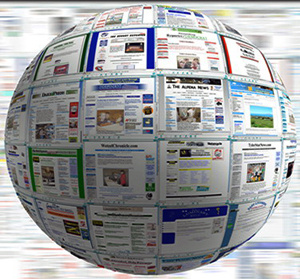Iran says talks could be West’s last chance

Reuters- Talks next week between Iran and major powers concerned about its nuclear program could be the "last chance" for the West, a senior Iranian official was quoted as saying on Wednesday.
Official news agency IRNA quoted Ali Asghar Soltanieh, Iran’s ambassador to the International Atomic Energy Agency, as saying that once Iran is able to make its own fuel for a medical research reactor, which it has said will happen this year, it may not return to negotiations if the talks in Turkey fail.
"It might be the last chance because by installing fuel rods produced by Iran into the core of the Tehran Research Reactor, probably parliament will not allow the government to negotiate or send its uranium outside the country and the Istanbul meeting might be the last chance for the West to return to talks," IRNA quoted Soltanieh as telling French media.
The comment comes a week before Iran meets the five permanent members of the U.N. Security Council and Germany in Istanbul on January 21-22. Those countries want assurances that Iran is not developing nuclear weapons.
A similar round of talks concluded in October 2009 with a tentative pact for Iran to export some of its low-enriched uranium in exchange for higher enriched, 20 percent uranium, for the Tehran reactor which makes medical isotopes.
But that deal -- meant as a confidence building measure leading to further talks -- unraveled when Tehran backed away from the terms, ultimately leading to a new wave of sanctions which some analysts say helped push Tehran back to the negotiating table.
Acting Foreign Minister Ali Akbar Salehi said on Saturday that Iran would be able to make its own fuel for the Tehran reactor later this year, making any fuel swap deal "lose its meaning".
Western analysts say Iran sometimes exaggerates its nuclear advances to gain leverage in its stand-off with the West.
"The passing of time is not to the advantage of the other negotiating party and (they) should swiftly make the best of this opportunity," Soltanieh was quoted as saying.
"We consider the possession of peaceful nuclear technology, especially uranium enrichment for peaceful purposes and under the supervision of the IAEA as our absolute right ... By no means will we give up on our undeniable peaceful nuclear technology."
The U.N. Security Council has called on Iran to suspend its uranium enrichment, which can produce fuel for nuclear reactors, and, if done to a much higher level, for nuclear bombs
Russia mulling Iran’s nuclear invitation
Tehran Times--Russian Deputy Foreign Minister Sergei Ryabkov has said Moscow is considering whether to accept Tehran’s invitation to tour Iranian nuclear facilities.
The Russian official pointed out that the Iranian move showed “readiness to start a certain dialogue on this important subject.”
“We received this initiative with interest,” AFP quoted Ryabkov as saying in Moscow on Tuesday. “We have not yet reached our decision.”
The remarks come a week after Tehran announced Iran’s nuclear sites were open to envoys representing “geographical and political groups” in the Vienna-based International Atomic Energy Agency (IAEA).
The invitation came ahead of planned multifaceted talks with the P5+1, which includes the five permanent members of the UN Security Council -- the U.S., Britain, France, Russia, and China -- plus Germany in Turkey on January 21 and 22.
Iran and the P5+1 wrapped up two days of comprehensive talks in the Swiss city of Geneva on December 7, during which both sides agreed to hold the next round of negotiations in Turkey.
Meanwhile, the IAEA continues to conduct inspections regularly and has placed cameras inside the facilities for further scrutiny.
As an IAEA member state and a signatory to the Nuclear Non-Proliferation Treaty (NPT), Iran has repeatedly refuted Western accusations that it is following a military nuclear program.
Iranian officials and lawmakers have hailed the invitation as a major step toward showing the international community of Iran’s policy of “nuclear transparency.”

